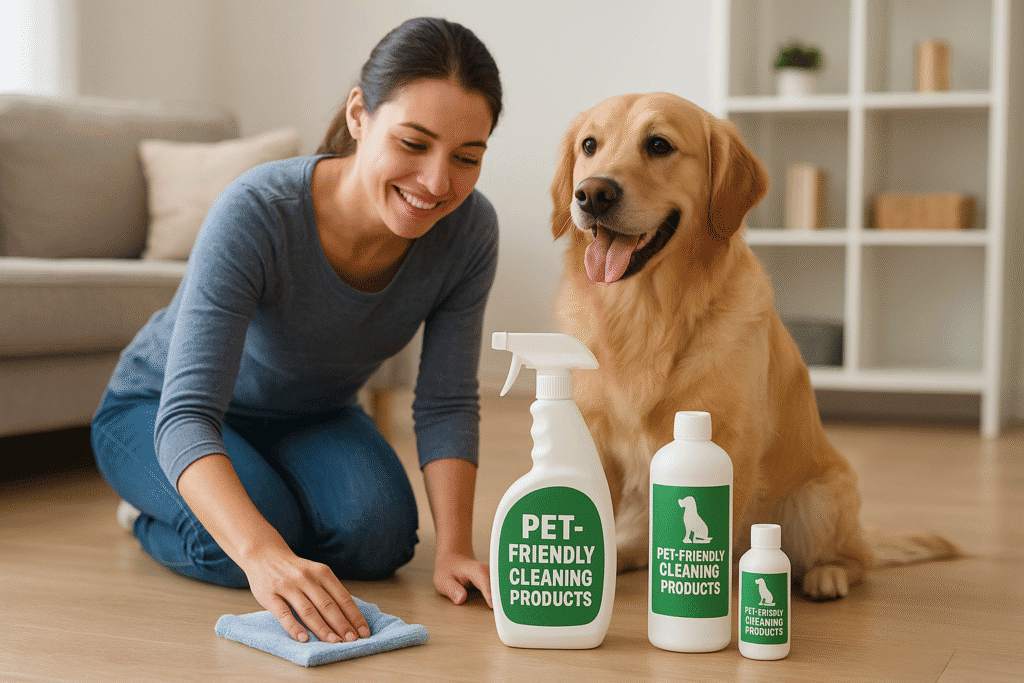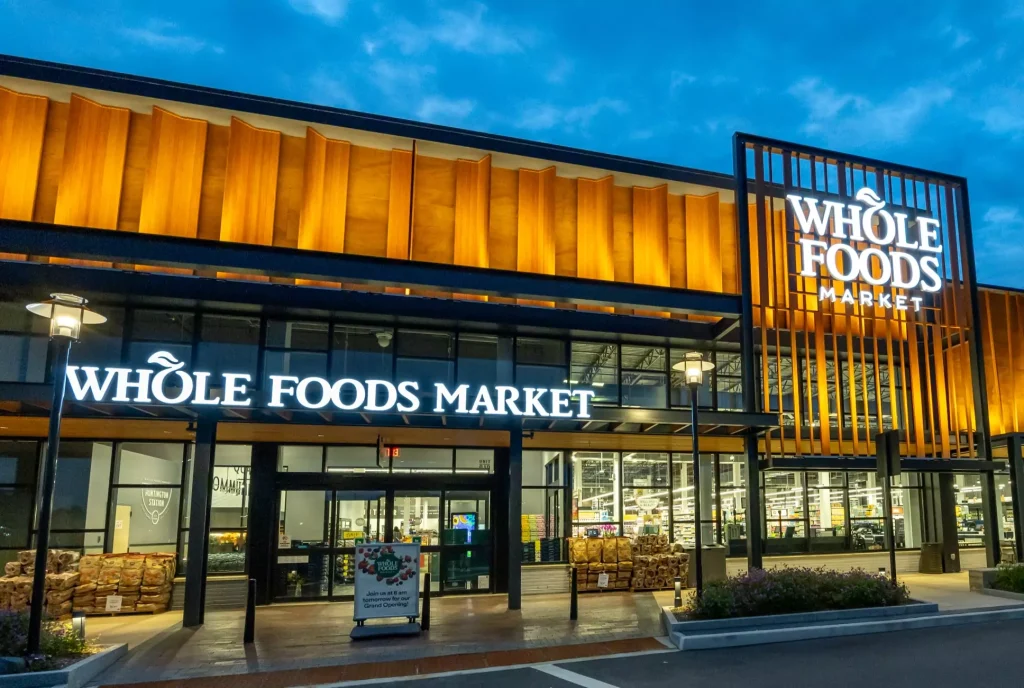Check how old is your pet in human years using our Pet Age Calculator.
As a pet owner, keeping my furry friends safe is always a top priority. When it comes to cleaning my home, I often wonder if the products I use are truly pet-friendly.
With so many options on the market claiming to be safe for pets, it’s crucial to dig deeper and understand what that really means.
Are these cleaning products as harmless as they seem? While many brands tout their pet-friendly labels, not all products are created equal.
It’s essential to examine the ingredients and their potential effects on our beloved companions. Join me as I explore the safety of pet-friendly cleaning products and uncover the truth behind their claims.
Table Of Contents
Are Pet Friendly Cleaning Products Safe?
Pet-friendly cleaning products are often marketed as safe alternatives for households with animals. However, the term “pet-friendly” doesn’t guarantee complete safety. I scrutinize the labels and ingredients of these products to determine their real impact on my pets.
Many cleaning products contain ingredients that may still pose risks, even if they’re labeled as safe for pets. Here are some common components I look out for:
- Surfactants: Surfactants may irritate a pet’s skin or digestive system.
- Fragrances: Synthetic fragrances might irritate the respiratory systems of pets, especially those with allergies.
- Enzymes: Some enzyme-based cleaners aren’t toxic, yet can cause gastrointestinal upset if ingested in large quantities.
- Alcohols: Certain alcohols can be dangerous if consumed by pets.
To ensure a cleaning product’s safety, I recommend checking for certifications or approvals from reputable organizations, such as the Environmental Protection Agency (EPA) or the American Society for the Prevention of Cruelty to Animals (ASPCA). Brands that provide transparency regarding their ingredient sourcing offer greater assurance regarding safety for pets.
Additionally, I prefer hypoallergenic products made from natural ingredients, as they typically contain fewer harmful chemicals.
Reading consumer reviews and recommendations can also provide insights into the safety of products used by other pet owners.
The safest approach involves keeping pets away from freshly cleaned areas until they’ve adequately dried. By staying informed and cautious, I can help minimize potential risks associated with cleaning products in my home.
Understanding Pet Friendly Cleaning Products
Pet-friendly cleaning products are specifically formulated to minimize health risks to pets. These products often use natural or less toxic ingredients while avoiding harmful chemicals that can affect animals.
What Makes a Product Pet Friendly?
- Absence of known toxic chemicals like ammonia, chlorine, phenols, and certain quaternary ammonium compounds (e.g., BAC and DDAC) is essential.
- Use of natural, non-toxic ingredients like baking soda, vinegar, and lemon juice that are recognized as safe for pets.
- Inclusion of enzymatic cleaners that break down organic waste safely is critical.
- Proper labeling as “pet safe” or “pet friendly” confirms adherence to regulatory standards through testing.
Common Ingredients in Pet Friendly Cleaners
- Baking soda: Effective for cleaning, stain removal, and odor neutralization.
- Vinegar: A natural disinfectant often combined with baking soda or lemon juice for enhanced cleaning.
- Enzymatic cleaners: Contain enzymes that safely break down organic stains and odors without leaving toxic residues.
- Avoidance of phenols, especially phenol-based disinfectants, is crucial due to their toxicity to cats.
Safety Concerns for Pets
Pet-friendly cleaning products often present a safer alternative to conventional household cleaners. These cleaners can harbor harmful chemicals that pose various risks to pets.
Potential Risks of Non-Pet Friendly Products
Non-pet friendly products contain toxic ingredients that may harm pets. For example:
- Ammonia can lead to respiratory irritation and skin burns.
- Chlorine, primarily found in bleach, poses risks of skin irritation and potential ingestion hazards.
- Phenols, highly toxic to cats, may result in severe liver and kidney damage.
- Glycol ethers can cause anemia and significant liver damage.
- Phthalates can contribute to respiratory issues in dogs.
Symptoms of Exposure in Pets
Exposure to harmful cleaning products triggers different symptoms, depending on how pets contact the substances:
- Ingestion can result in drooling, vomiting, diarrhea, lethargy, and seizures.
- Inhalation may cause sneezing, coughing, watery eyes, and difficulty breathing.
- Skin Contact can lead to redness, irritation, sores, blisters, and chemical burns.
I always recommend opting for pet-friendly cleaning products. It’s crucial to monitor pets during cleaning to prevent accidental exposure.
Benefits of Using Pet Friendly Cleaning Products
Using pet-friendly cleaning products offers multiple advantages that enhance the safety and well-being of pets in the home.
- Reduced risk of poisoning: Conventional cleaners often contain harmful chemicals like ammonia, chlorine, phenols, glycol ethers, and phthalates. Exposure to these substances can cause serious health issues in pets, such as respiratory problems and skin irritation. Pet-friendly products primarily use natural ingredients, significantly lowering the risk of poisoning.
- Safer environment: Pets are particularly susceptible to residual chemicals due to their size and grooming habits. Pet-friendly products minimize the risk of toxins lingering on surfaces and in the air. For example, using vinegar and baking soda for cleaning reduces exposure, creating a healthier living space for pets.
- Effective cleaning through natural ingredients: Natural ingredients such as baking soda, lemon juice, and enzymatic cleaners provide effective cleaning solutions. These ingredients deodorize and sanitize without introducing harmful substances, ensuring a clean home that’s safe for pets.
- Health and safety standards: Many pet-friendly cleaning products adhere to strict safety guidelines. By choosing certified products from reputable brands, I can ensure my cleaning routine aligns with health and safety standards, minimizing any potential risks to my pets.
- Easier management of pet-related messes: Enzymatic cleaners break down organic waste efficiently, making them particularly useful for cleaning up after pets. This effectiveness not only makes cleaning easier but also promotes a hygienic environment.
While pet-friendly cleaning products present numerous benefits, it’s essential to supervise pets during and after cleaning. Even natural cleaners can pose risks if ingested, so keeping pets away until surfaces dry ensures their safety.
Tips for Choosing Safe Cleaning Products for Pet Owners
- Avoid harmful chemicals: I steer clear of cleaning products containing ammonia, bleach, phenols, glycol ethers, or certain quaternary ammonium compounds like BAC and DDAC. These substances pose serious risks to pets, including poisoning and respiratory problems.
- Use natural or enzymatic cleaners: I opt for products made with baking soda, vinegar, lemon juice, and enzymes such as protease, amylase, or lipase. These ingredients effectively clean and combat odors without endangering my pets.
- Keep products out of reach: I store all cleaning supplies securely, even those labeled as pet-safe. I also keep my pets away during and immediately after cleaning to prevent accidental ingestion or inhalation of harmful residues.
- Follow directions closely: I ensure proper dilution and ensure good ventilation when using cleaning products. This practice minimizes any residue or fumes that could potentially harm my pets.
- Watch for symptoms of poisoning: I remain vigilant for signs of poisoning in my pets, including vomiting, coughing, lassitude, skin irritation, or respiratory difficulties. If I notice any of these symptoms, I seek veterinary assistance immediately.
Key Takeaways
- Pet-friendly cleaning products are marketed as safe but may still contain harmful ingredients; always read labels carefully.
- Look for certifications from reputable organizations like the EPA or ASPCA to ensure product safety.
- Common harmful ingredients to avoid include ammonia, bleach, phenols, and certain alcohols that can pose serious health risks to pets.
- Natural alternatives such as baking soda and vinegar are effective cleaning agents that reduce exposure to harmful chemicals.
- Supervise pets during and after cleaning; keep them away from freshly cleaned areas until surfaces are dry to minimize risks.
- Monitoring for symptoms of poisoning in pets is crucial, including signs like vomiting, irritation, and respiratory issues.
Conclusion
Choosing the right cleaning products for a pet-friendly home is crucial for their safety and well-being. I’ve learned that not all products labeled as pet-friendly are genuinely safe.
By carefully examining ingredients and opting for certified options, I can create a healthier environment for my furry friends.
It’s essential to prioritize natural and non-toxic cleaners while staying vigilant about potential risks. Keeping pets away from freshly cleaned areas and monitoring for any signs of distress ensures they’re protected.
By making informed choices, I can maintain a clean home without compromising my pets’ safety. Let’s keep our spaces clean and our pets safe.
Frequently Asked Questions
What are pet-friendly cleaning products?
Pet-friendly cleaning products are cleaning solutions specifically formulated to be safe for pets. They typically do not contain harmful chemicals like ammonia or chlorine and use natural ingredients like vinegar and baking soda instead.
How can I identify safe cleaning products for pets?
To identify safe cleaning products, look for labels that state “pet-friendly” or “pet-safe.” Additionally, check for certifications from reputable organizations, such as the EPA or ASPCA, and choose products made from natural ingredients without toxic additives.
What common ingredients should I avoid in cleaning products?
Avoid cleaning products that contain ammonia, chlorine, phenols, glycol ethers, and phthalates, as these can be toxic to pets and cause serious health issues if ingested or inhaled.
Why is it important to choose pet-friendly cleaning products?
Choosing pet-friendly cleaning products reduces the risk of poisoning, creates a safer environment for your pets, and minimizes exposure to harmful chemicals lingering in your home, contributing to overall health and well-being.
Can natural cleaning products still be harmful to pets?
Yes, even natural cleaning products can pose risks if ingested. It’s crucial to keep pets away from freshly cleaned areas until they have dried and to supervise pets during and after cleaning to ensure their safety.





